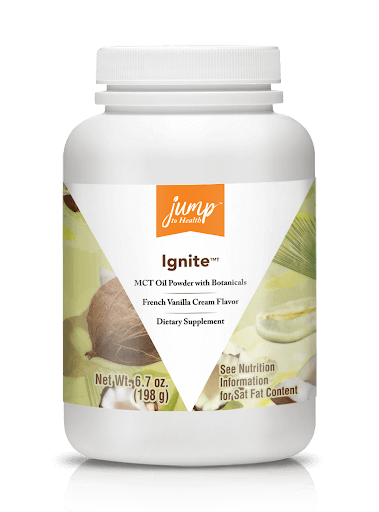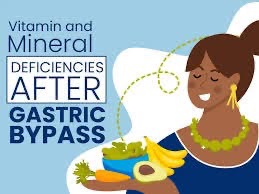Nutrition Collections Series
Busting the Food Myth: Why Fats are Important in Your Diet
by Audrey Sommerfeld | Founder & CEO
August 2024

Let’s clear up a big misunderstanding: the idea that all fats are bad. Far from it—your body needs healthy fats to function properly! Not only do they provide energy, but they're also vital components of every cell, including those in your brain, which is about 60% fat.
The Vital Roles of Nutritional Fats
Fats are indispensable in:
- Hormone Regulation
- Body Temperature Maintenance
- Immune System Support
- Reproductive Health
- Insulin Signaling
- Nutrient Absorption
Back in the 1980s, a flawed study and aggressive food lobbying skewed dietary guidelines towards carbs and away from fats. This led to increases in obesity and other health issues as carbs can turn to sugar, causing insulin spikes and mood fluctuations.
The Power of Feeling Full with Dietary Fats
Fats help manage your hunger better than carbs. They take longer to digest, which keeps you feeling full longer. Starting your meal with a fat-rich food like avocado salad, cream soup, or cheese can help you consume less overall.
Here’s What You Gain from Fats:
Brain and Skin Health
Essential for nourishing your brain, butter contains butyric acid, known for supporting both brain and gut health. Butyric acid is a short-chain fatty acid that serves as a primary energy source for colon cells, aids in maintaining intestinal barrier function, and has anti-inflammatory properties.
Satiety
Incorporating fats like those found in the keto diet can help reduce your overall calorie intake. Fat takes longer to digest (longer than protein, and much longer than carbs), so when you begin a meal with a cream soup, or cheese, or avocado salad – you will eat less overall.
Some say that along with walking more, eating healthy fats is why the French are thinner! The French eat more fats – think cream and cheese – and by doing so, eat less food overall.
Nutrient Absorption
Fats aid in absorbing fat-soluble vitamins such as A, D, E, and K.The fats you absorb from food gives your body essential fatty acids called linoleic and linolenic acid. They are called "essential" because your body cannot make them alone and needs them for brain development, controlling inflammation, and blood clotting.
Energy
Fats provide sustained energy, especially during prolonged physical activity. During exercise, your body burns calories from the carbohydrates you have eaten. But after 20 minutes, your body depends on calories from fat to keep going.
Choosing the Right Fats
Not all fats are created equal. Knowing the difference between good and bad fats can help you make healthier dietary choices.
Good Fats
Monounsaturated and polyunsaturated fats are your allies in maintaining good health. You can find these beneficial fats in foods like nuts, seeds, avocados, and cold-water fish such as salmon and herring. Additionally, oils derived from olives, corn, sunflowers, and other vegetables are packed with these healthy fats. A quick tip to identify unsaturated fats is that they remain liquid at room temperature.
Omega-3 fatty acids, a specific type of polyunsaturated fat found in flax seeds, walnuts, and fatty fish, are particularly good for brain function and overall heart health.
Check out Vital Omega https://www.fluid.app/s/829a78

Butter also contains butyric acid, a potent fatty acid known for its ability to support digestive health, reduce inflammation, and lower disease risk. It provides essential energy to colon cells, aids in blood sugar regulation, and helps maintain healthy cholesterol levels.
Bad Fats
Conversely, trans fats are the fats you need to avoid. Commonly found in processed foods like margarine, trans fats can wreak havoc on your health. They increase LDL (bad) cholesterol levels while lowering HDL (good) cholesterol, which can lead to clogged arteries and heightened heart disease risk. Additionally, trans fats can make blood platelets stickier, further increasing the risk of heart disease.
While fats like monounsaturated, polyunsaturated, and the butyric acid in butter can boost your health, trans fats found in processed foods can do significant harm. By choosing your fats wisely, you can enjoy the benefits of a healthier, well-balanced diet.
Introducing Ignite – Your Ketogenic Booster
Our specially formulated Ignite MCT oil is perfect for those following a keto diet. It helps maintain ketosis and provides a quick energy source, much like how a smoothie is easier to consume than a whole fruit.
Curious to learn more about the benefits of fats and how you can integrate them effectively into your diet?
- Check out our Ignite product available in the USA and Canada. https://www.fluid.app/s/8403cc
- Watch our Ignite Video https://www.fluid.app/s/c19746
- Dive deeper with our Ignite Fact Sheet https://www.fluid.app/s/ddbe3d
Explore more about the importance of fats in your diet here.

Let's Chat!
Have questions about incorporating healthy fats into your diet or want to share your experiences with keto? Send us a message —we’d love to hear from you! www.livelife-now.com

No comments:
Post a Comment